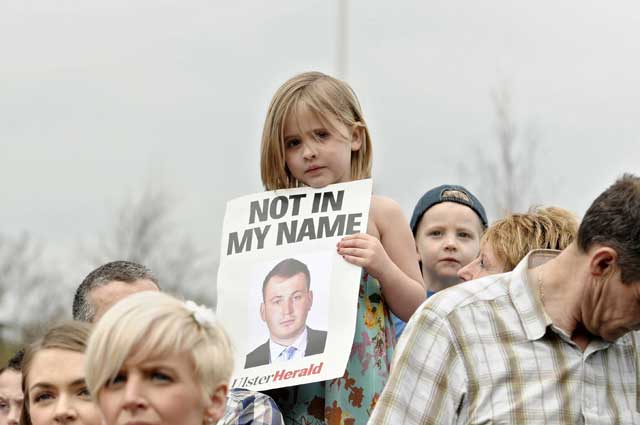
The BBC's Peter Taylor has been rustling through the terrorist undergrowth for so long that the first picture of him in this book, being attacked by a loyalist mob in Belfast, shows him with bushy early 1970s sideburns. He has spent practically four decades delving into the world of violent men and their often silky apologists. They point their guns;Taylor points his microphone and asks why they do it.
His longevity and willingness to take risks places him in the pantheon of investigative reporters alongside others such as John Ware of the BBC and the Independent's Robert Fisk:the shock troops of journalism. All three cut their teeth in Northern Ireland, Taylor arriving there the day after Bloody Sunday in 1972 and returning frequently to cover what seemed an endless war.
Eventually, the violence subsided, only to be superseded by another and even more terrible conflict, the war with terror. The cold statistics tell the story, since in all its years the IRA killed around 1,700 people. Al Qa'eda killed 3,000 on one day. Just as the Irish conflict cooled, the Middle East heated up. That 2001 day changed many lives, including Taylor's, as he shifted focus from the Bogside to Bin Laden.
The scale of Al Qa'eda's indiscriminate slaughter now allows ex-IRA members to argue that their campaign was "probably quite civilised". One says that in Belfast, "there was never that sort of blood-letting". That thought is little consolation for the victims or for a society that had to endure decades of violence, inflicting scar tissue which will be there for generations.
The rise of Al Qa'eda took Taylor around the world, from Afghanistan to Bali, from Madrid to Guantánamo Bay. One of the Madrid bombers, he reminds us, was given what must be a world record prison sentence: 43,000 years on 91 counts of murder.
Various questions have been in Taylor's mind as he interviewed convicted terrorists, their victims, their interrogators and the families of suicide bombers. The terrorists say chilling things such as, "With God's willing, we are terrorists to the bone. We fight you and destroy you and terrorise you." Rhetorical and actual violence indicates that many years of struggle lie ahead. Taylor, like everyone else, knows there are no quick solutions to all this, but he considers the question of whether talking can help.
He reaches no definitive conclusions, but two of the book's photographs hold out a glimmer of long-term hope. One shows Martin McGuinness - youthful, grim-faced - at a 1970s IRA press conference, declaring that the Brits must go. On the next page the republican leader is depicted 35 years later, a huge beam on his face, standing next to the Rev Ian Paisley as joint heads of a power-sharing government. McGuinness now describes Paisley, with evident sincerity, as his friend. Somewhere along the road, the two discovered compromise.
Taylor shows how, even at the height of IRA activity, a channel of communication existed with London which even Margaret Thatcher allowed to continue. Such links can convey all sorts of messages and impressions. They can be educative for both sides, conveying what might be possible. There are hawks and doves, even within the Taliban.
Partly because of such contacts, the Provisional IRA has now passed into history. Al Qa'eda is a more difficult enemy - bigger, more far-flung, scattered over many countries. It deliberately seeks to murder as many civilians as possible, and has many volunteer suicide bombers. It combines ancient barbarism with modern technology such as planes and computers. It is a global phenomenon with many disparate affiliates, not all directly linked to the core leadership. It is thus much more difficult to pin down and penetrate.
Making contact with its leaders is not the whole answer, but Northern Ireland shows it can be valuable. There are sombre lessons from the Belfast experience. One is that the timing has to be right. Talks will not progress far while one side is committed to victory rather than open to compromise. Another is that deaths continue while talks go on: peace comes at the end of a process, not during it. Yet another is that, as Taylor's odyssey illustrates, success can take decades. For all that, Belfast delivers one powerful message: that war need not be endless.
David McKittrick's books inlcude 'Lost Lives' (Mainstream)
Join our commenting forum
Join thought-provoking conversations, follow other Independent readers and see their replies
Comments